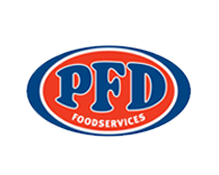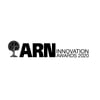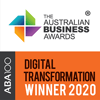Classification and Regression Trees
Classification and regression trees:Classification and regression trees are methods used in machine learning to create models that can be used to make predictions about data. Classification trees are used to predict categorical data, such as whether an email is spam or not, while regression trees are used to predict numerical data, such as the price of a stock.
Classification and regression trees are powerful tools for analysing data. They can provide valuable insights into how to better understand complex datasets and help us make decisions about our future actions. But what exactly are classification and regression trees? How do they work, and why should we care about them? This article will explain the fundamentals of this important tool, detailing its benefits and limitations in order to give readers an understanding of how it works and how it can be used most effectively.
It's essential that we have a clear grasp of these concepts if we're to remain competitive in today's competitive world. Classification and regression trees allow us to uncover patterns within our data which may otherwise go unnoticed - helping us gain valuable insights into our consumers, market trends, or whatever else is relevant to our business operations. By utilising these techniques, companies can save time, money, and energy while also boosting their overall efficiency.
The power of classification and regression trees lies in their ability to parse through large quantities of information quickly yet accurately; essentially making sense out of chaos. Although there are other methods available, such as linear regressions or neural networks, none quite match up when it comes to speed or accuracy. Now let's dive deeper into this fascinating technique so that you can get the most out of your data!
What Is Regression Tree And Classification?
Regression trees and classification trees are two different types of tree models used in machine learning. The term 'classification and regression tree' (CART) is often used to refer to either type - but they both use the same algorithm, a decision tree-like structure diagram. A regression tree uses data from a set to predict an outcome or target value. It starts with a single root node which breaks down into smaller nodes until it reaches its maximum depth. These leaf nodes represent the final prediction labels for each sample within the data set. On the other hand, a classification tree works by predicting which class label will be given to new samples by looking at characteristics of previously labelled examples in the data set. In contrast to regression, it does not predict values like age or height; instead it predicts classes such as 'cat', 'dog', etc.. Both types of trees can also be combined with other methods, such as support vector machines (SVMs). Such techniques allow us to identify important features in our data sets that we may want to focus on when building our model, making them more accurate and powerful than simple CARTs alone.
What Is The Major Difference Between Classification And Regression With An Example?
Classification trees and regression trees are two types of decision trees that can be used to construct a decision graph. A classification tree is used when the output variable is categorical, while a regression tree is used when the output variable is continuous. Each node in the graph represents a data point or test, each child node branches off from its parent node based on a split point determined by an algorithm, and ultimately leads to either a prediction or conclusion.
For example, if we wanted to use a decision tree for predicting whether someone would buy something or not (binary classification), then we could use a classification tree. In this case, our input variables may include age, gender and income level. The root node might ask 'is the person over 21 years old?', with two subsequent nodes being ‘yes’ and ‘no’ respectively. If yes was selected as the answer, it might lead to another question such as 'what is their annual income?'. This process continues until all questions have been asked, leading us to reach either one of two conclusions: purchase or no purchase.
Regression trees work differently; they predict numeric values instead of classes or categories. For instance, suppose you want to build a model that predicts housing prices using factors like location and size of house; here you would use a regression tree since predicted value will be numerical (e.g., price).
TIP: Tree-based models are popular because they handle nonlinear relationships well due to their hierarchical structure – making them easy to interpret compared to other algorithms such as logistic regression and neural networks.
Can Regression Trees Be Used For Classification?
Regression trees can be used for classification. Decision tree learning is a popular method of machine learning, which uses decision trees to create models that predict outcomes or classify data into categories. A decision tree consists of an input dataset and a set of questions, known as 'tree nodes', arranged in a tree-like structure. At each node, the model chooses one question to ask based on its potential ability to better divide the dataset according to some criterion such as maximising information gain. The right hand side of the node represents the answer choices given by the tree depth and helps determine how far down the tree goes before reaching a leaf node. Each internal node contains a candidate split with binary values (yes/no) assigned to it depending on if the feature being tested passes or fails. Leaf nodes contain predicted class labels or regression outputs from all possible combinations of attribute values seen during training.
Tree-based methods are very powerful tools for both classification and regression tasks due to their flexibility when dealing with nonlinear relationships between features and targets. They also have good accuracy rates and require less tuning compared to other predictive models such as support vector machines and artificial neural networks. Furthermore, they often require fewer resources than alternative approaches since most decision tree algorithms require only linear time complexity regardless of data size or number of attributes present in the dataset. In addition, they provide high interpretability since decisions can be easily traced back through the structure of the tree itself without needing any external knowledge sources like mathematical equations or formulas.
What Is Regression Tree Analysis?
Regression tree analysis is a powerful tool used in machine learning algorithms and data mining. It utilises information gain, gini impurity, and random forests to classify or predict the values of dependent variables based on predictor variables. In essence, it's like linear regression but with decision trees that are created from data inputs. The goal is to find the target variable using the data available.
It can be quite complex at times, requiring specific techniques such as a confusion matrix to ensure accuracy when analysing results. For example, if you're trying to determine marketing success for product XYZ, you'd create a tree diagram showing how different factors such as promotions and consumer interests affect sales figures. From there you could use the tree diagram to identify patterns that would help improve your marketing strategy.
This type of analysis has become increasingly popular due its ability to quickly process large amounts of data and draw conclusions about complex relationships between interdependent variables. Ultimately, regression tree analysis provides valuable insights into customer preferences and behaviour which can be used to make better-informed decisions regarding products and services offered by businesses.
How Do Classification And Regression Differ?
Classification and regression trees (CART) are a type of decision tree classifier that is used to build interpretable models. These models can be represented through a cart model, which consists of nodes and branches. The nodes represent the decisions made, while the branches show the consequences of those choices. Each node has an associated feature, or independent variable, and each branch leads to either another node or a terminal leaf with predicted outcomes.
The two main types of CARTs are classification trees and regression trees. Classification trees are used when the dependent variable is categorical in nature, while regression trees are used when the dependent variable is numerical. Both algorithms use cross-validation to evaluate how well they fit their data sets by measuring an objective function such as accuracy or root mean squared error (RMSE).
In terms of advantages and limitations, CART has several key benefits for predictive analytics: it allows users to identify important interactions between variables; its structure makes it easy to interpret results in comparison to other methods; its ability to handle both linear and nonlinear relationships; it’s relatively fast compared to other techniques like rotation forest; finally, it does not require large amounts of training data. However, there are some drawbacks associated with this algorithm including over-fitting due to small datasets, high variance resulting from randomness introduced during pruning processes, and lack of global optimality due to local searching strategies employed at each split point.
Despite these limitations, CART remains one of the most widely used algorithms for supervised learning tasks because of its ease of implementation and interpretability. It can be applied in various fields such as medical diagnosis systems, financial analysis systems, customer segmentation approaches etc., where prediction accuracy along with interpretability matters more than anything else.
Conclusion
I have discussed the differences between classification and regression trees. Classification and regression are two distinct techniques that can be utilised to analyse data. Classification is used when a response variable is categorical, while regression is used when the response variable is continuous. Regression trees can also be used for classification as long as the dependent variable has been converted into either binary or nominal classes. Regression tree analysis involves creating decision boundaries based on various combinations of independent variables in order to accurately predict an outcome from a given set of data points. Classification and regression differ in their approach towards analysing data and arriving at conclusions about it. While both methods require careful consideration of what type of information should be included in the model, they provide different levels of accuracy depending on which technique best suits the problem being addressed. Ultimately, it's important to understand both approaches so you can determine which will give you the most accurate results for your particular application.
PREVIOUS NARROW AI GLOSSARY TERM
NEXT NARROW AI GLOSSARY TERM
CLASSIFICATION AND REGRESSION TREES DEFINITION
N-Gram Classification: Decision Tree Classifier, Decision Tree Regressor,CART Algorithm Substring Matches: Class, Regre Long-tail variations: "Decision Tree Classifier", "Decision Tree Regressor", "CART Algorithm" Category: AI & Machine Learning Search Intent: Research, Solutions Purchase Keyword Associations: Machine Learning, Decision Trees, Python Semantic Relevance: Artificial Intelligence, Computer Science, Data Science Parent Category: AI & Machine Learning Subcategories: Decision Trees, CART Algorithms Synonyms : Machine Learning , Decision Trees , Python Similar Searches : Artificial Intelligence ,Computer Science ,Data Science Geographic Relevance : Global Audience Demographics : Professionals , Students , Researchers Brand Mentions : Scikit Learn , Tensor Flow , Microsoft Azure Industry-specific data : Classification Accuracy Rate Commonly used modifiers :"Algorithms", "Techniques", "Methods" Topically Relevant Entities : Artificial Intelligence , Computer Science , Data Science , Decision Trees , CART Algorithms; Machine Learning Techniques; Python Programming Language; Scikit Learn Library; Tensor Flow Library;Microsoft Azure."Larry will be our digital expert that will enable our sales team and add that technological advantage that our competitors don't have."
Kerry Smith
CEO, PFD Foods
$1.6 billion in revenue 
"Lion is one of Australasia’s largest food and beverage companies, supplying various alcohol products to wholesalers and retailers, and running multiple and frequent trade promotions throughout the year. The creation of promotional plans is a complicated task that requires considerable expertise and effort, and is an area where improved decision-making has the potential to positively impact the sales growth of various Lion products and product categories. Given Complexica’s world-class prediction and optimisation capabilities, award-winning software applications, and significant customer base in the food and alcohol industry, we have selected Complexica as our vendor of choice for trade promotion optimisation."
Mark Powell
National Sales Director, Lion
"At Liquor Barons we have an entrepreneurial mindset and are proud of being proactive rather than reactive in our approach to delivering the best possible customer service, which includes our premier liquor loyalty program and consumer-driven marketing. Given Complexica’s expertise in the Liquor industry, and significant customer base on both the retail and supplier side, we chose Complexica's Promotional Campaign Manager for digitalizing our spreadsheet-based approach for promotion planning, range management, and supplier portal access, which in turn will lift the sophistication of our key marketing processes."
Richard Verney
Marketing Manager
Liquor Barons

"Dulux is a leading marketer and manufacturer of some of Australia’s most recognised paint brands. The Dulux Retail sales team manage a diverse portfolio of products and the execution of our sales and marketing activity within both large, medium and small format home improvement retail stores. We consistently challenge ourselves to innovate and grow and to create greater value for our customers and the end consumer. Given the rise and application of Artificial Intelligence in recent times, we have partnered with Complexica to help us identify the right insight at the right time to improve our focus, decision making, execution, and value creation."
Jay Bedford
National Retail Sales Manager
Dulux

"Following a successful proof-of-concept earlier this year, we have selected Complexica as our vendor of choice for standardizing and optimising our promotional planning activities. Complexica’s Promotional Campaign Manager will provide us with a cloud-based platform for automating and optimising promotional planning for more than 2,700 stores, leading to improved decision-making, promotional effectiveness, and financial outcomes for our retail stores."
Rod Pritchard
Interim CEO, Metcash - Australian Liquor Marketers
$3.4 billion in revenue 
"After evaluating a number of software applications and vendors available on the market, we have decided to partner with Complexica for sales force optimisation and automation. We have found Complexica’s applications to be best suited for our extensive SKU range and large set of customers, being capable of generating recommendations and insights without burdening our sales staff with endless data analysis and interpretation.
Aemel Nordin
Managing Director, Polyaire
"DuluxGroup is pleased to expand its relationship with Complexica, a valued strategic partner and supplier to our business. Complexica’s software will enable DuluxGroup to reduce the amount of time required to generate usable insights, increase our campaign automation capability, personalise our communications based on core metrics, and close the loop on sales results to optimise ongoing digital marketing activity."
James Jones
Group Head of CRM, DuluxGroup
"Instead of hiring hundreds of data scientists to churn through endless sets of data to provide PFD with customer-specific insights and personalised recommendations, Larry, the Digital Analyst® will serve up the answers we need, when we need them, on a fully automated basis without the time and manual processes typically associated with complex analytical tasks.”
Richard Cohen
CIO, PFD Foods
$1.6 billion in revenue 
"As a global innovator in the wine industry, Pernod Ricard Winemakers is always seeking ways to gain efficiencies and best practices across our operational sites. Given the rise of Artificial Intelligence and big data analytics in recent times, we have engaged Complexica to explore how we can achieve a best-in-class wine supply chain using their cloud-based software applications. The engagement is focused on Australia & New Zealand, with a view to expand globally."
Brett McKinnon
Global Operations Director, Pernod Ricard Winemakers
"70% - 80% of what we do is about promotional activity, promotional pricing -- essentially what we take to the marketplace. This is one of the most comprehensive, most complex, one of the most difficult aspect of our business to get right. With Complexica, we will be best in class - there will not be anybody in the market that can perform this task more effectively or more efficiently than we can."
Doug Misener
CEO, Liquor Marketing Group
1,400+ retail stores 
"The key thing that makes such a difference in working with Complexica is their focus on delivering the business benefits and outcomes of the project."
Doug Misener
CEO, Liquor Marketing Group
1,400+ retail stores 
"Australia needs smart technology and people, and it has been a great experience for me to observe Complexica co-founders Zbigniew and Matt Michalewicz assemble great teams of people using their mathematical, logic, programming, and business skills to create world-beating products. They are leaders in taking our bright graduates and forging them into the businesses of the future."
Lewis Owens
Chairman of the Board, SA Water 
"Having known the team behind Complexica for some years ago now, I am struck by their ability to make the complex simple - to use data and all its possibilities for useful purpose. They bring real intelligence to AI and have an commercial approach to its application."
Andrew McEvoy
Managing Director, Fairfax Media - Digital 
"I have worked with the team at Complexica for a number of years and have found them professional, innovative and have appreciated their partnership approach to delivering solutions to complex problems."
Kelvin McGrath
CIO, Asciano 
“Working with Complexica to deliver Project Automate has been a true partnership from the initial stages of analysis of LMG’s existing processes and data handling, through scoping and development phase and onto delivery and process change adoption. The Complexica team have delivered considerable value at each stage and will continue to be a valued partner to LMG."
Gavin Saunders
CFO, Liquor Marketing Group 
“Complexica’s Order Management System and Larry, the Digital Analyst will provide more than 300 Bunzl account managers with real-time analytics and insights, to empower decision making and enhanced support. This will create more time for our teams to enable them to see more customers each day and provide the Bunzl personalised experience.”
Kim Hetherington
CEO, Bunzl Australasia 
"The team behind Complexica develops software products that are at the cutting edge of science and technology, always focused on the opportunities to deliver a decisive competitive edge to business. It has always been a great experience collaborating with Matthew, Zbigniew and Co."
Mike Lomman
GM Demand Chain, Roy Hill Iron Ore 
"The innovations that the Complexica team are capable of continue to amaze me. They look at problems from the client side and use a unique approach to collaborating with and deeply understanding their customers challenges. This uniquely differentiates what they bring to market and how they deliver value to customers."
John Ansley
CIO, Toll Group 
"Rather than building out an internal analytics team to investigate and analyse countless data sets, we have partnered with Complexica to provide our sales reps with the answers they need, when they need them, on a fully automated basis. We are excited about the benefits that Larry, the Digital Analyst will deliver to our business.”
Peter Caughey
CEO, Coventry Group 
“Complexica’s Order Management System and Larry, the Digital Analyst will provide more than 300 Bunzl account managers with real-time analytics and insights, to empower decision making and enhanced support. This will create more time for our teams to enable them to see more customers each day and provide the Bunzl personalised experience.”
Kim Hetherington
CEO, Bunzl Australasia 
"After an evaluation process and successful proof-of-concept in 2016, we have chosen to partner with Complexica to upgrade the technological capability of our in-field sales force. The next-generation Customer Opportunity Profiler provided by Complexica will serve as a key tool for sales staff to optimise their daily activities, personalise conversations and interactions with customers, and analyse data to generate actionable insights."
Stephen Mooney
Group Sales Capability Manager, DuluxGroup
$1.7 billion in revenue
"After evaluating a number of software systems available in the marketplace, we have ultimately selected Complexica as our vendor of choice for sales force automation and CRM. Given the large SKU range we carry and very long tail of customers we serve, Complexica’s applications are best suited to deal with this inherent complexity without burdening our staff with endless data entry."
Nick Carr
CEO, Haircaire Australia
Australia's largest distributor of haircare products
“Asahi Beverages is Australia’s largest brewer, supplying a leading portfolio to wholesalers and retailers, including some of Australia’s most iconic brands. Last year Asahi Beverages acquired Carlton & United Breweries, which is its Australian alcohol business division. To harness the strength of our expanded portfolio, we partner with our customers to run multiple and frequent trade promotions throughout the year, delivering long-term growth for both our business and theirs. Given the inherent complexity in optimising promotional plans and our continued focus on revenue and growth management, we have selected Complexica as our vendor of choice after a successful Proof-of-Concept of its world-class optimisation capabilities.”
Kellie Barnes
Group Chief Information Officer
Asahi Beverages
"Dulux is a leading marketer and manufacturer of some of Australia’s most recognised paint brands. The Dulux Retail sales team manage a diverse portfolio of products and the execution of our sales and marketing activity within both large, medium and small format home improvement retail stores. We consistently challenge ourselves to innovate and grow and to create greater value for our customers and the end consumer. Given the rise and application of Artificial Intelligence in recent times, we have partnered with Complexica to help us identify the right insight at the right time to improve our focus, decision making, execution, and value creation."
Jay Bedford
National Retail Sales Manager, DuluxGroup
"At Liquor Barons we have an entrepreneurial mindset and are proud of being proactive rather than reactive in our approach to delivering the best possible customer service, which includes our premier liquor loyalty program and consumer-driven marketing. Given Complexica’s expertise in the Liquor industry, and significant customer base on both the retail and supplier side, we chose Complexica's Promotional Campaign Manager for digitalizing our spreadsheet-based approach for promotion planning, range management, and supplier portal access, which in turn will lift the sophistication of our key marketing processes."
Richard Verney
Marketing Manager, Liquor Barons































